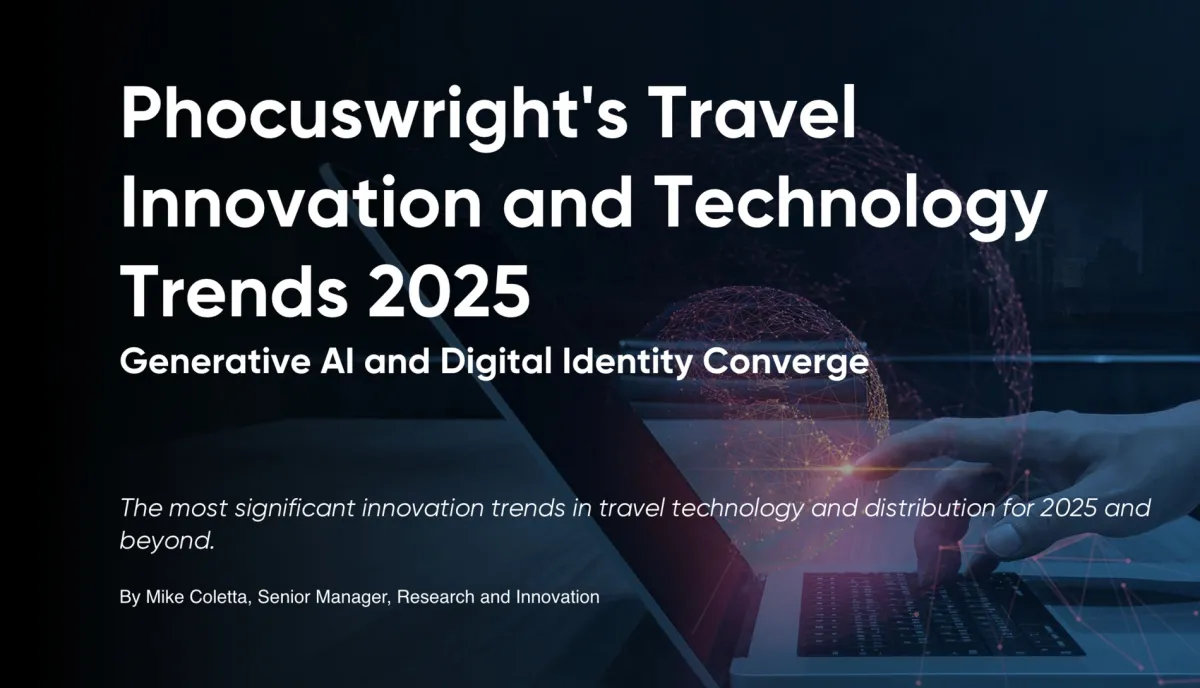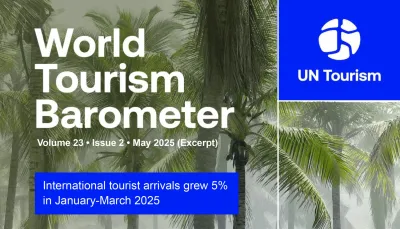GenAI
The New Age(nts): Generative AI, Digital Identity and the Next Era of Travel

GenAI
The future of travel is no longer theoretical — it’s unfolding in real time. According to Phocuswright’s just-released “Travel Innovation and Technology Trends 2025”, Generative AI and Digital Identity are set to reshape the travel landscape faster and more fundamentally than anything since the internet.
Why This Matters Now
In 2023, just 22% of U.S. travelers used GenAI for any purpose. By 2024, that number jumped to 39%, surpassing long-established technologies like VR and AR. Of those using GenAI, 46% used it for travel-related purposes, making it the second most common use case after entertainment.
Looking ahead, leisure travel is expected to become the top GenAI use case over the next 12 months — because travelers see the tech as useful, creative, and increasingly trustworthy.
Travel Planning Moves to Chat
Phocuswright identifies a major shift coming in how travelers search and book:
Consumers will increasingly use generative chat and search environments (e.g., ChatGPT, Gemini) to research and book trips — with Google already demoing flight search inside Gemini, and OpenAI’s “Operator” featuring booking integration with partners like Booking.com and Priceline.
Even if only 40% of travelers currently express interest in booking directly through GenAI, that figure is considered strong given how entrenched current habits are. With AI environments offering live pricing, personalization, and end-to-end booking, adoption is expected to accelerate, especially for simpler itineraries.
Autonomous Agents Join the Workforce
Phocuswright’s report points to autonomous agents — bots powered by models like OpenAI’s o3 and Google’s Gemini 2.0 — as the next transformative force in travel. These agents will:
- Shop and book trips across the web
- Tailor recommendations based on user preferences
- Handle real-time decisions and itinerary changes
This isn't just theoretical. In late 2024, OpenAI’s o3 scored 87.5% on the ARC-AGI benchmark, exceeding the 85% threshold used to identify artificial general intelligence. Salesforce, Google, and Nvidia have all announced enterprise-scale agent platforms, with Salesforce projecting 1 billion AI agents in service by 2026.
The Critical Role of Digital Identity
To function safely and effectively, AI agents will rely on digital identity — secure, user-controlled credentials that can include:
- Payment details
- Travel preferences
- Loyalty data
- Legal identity documents
In 2026, every EU member state must offer citizens a digital identity wallet, and Gartner predicts 500 million smartphone users will be using one by then. These IDs won’t just streamline shopping and booking — they will power personalized automation at scale, helping agents manage the entire travel journey with minimal user input.
Industry Implications
The rise of GenAI and autonomous agents will impact:
- Operations: AI tools already boost productivity in customer service, content, and marketing.
- In-Destination Experience: Smart glasses and AI guides make local discovery more immersive.
- Distribution: A shake-up is coming — will OTAs retain their edge, or will agents go straight to suppliers?
- Marketing: Google’s GenAI-powered AI Overviews caused click-through rates on travel searches to drop from 30% to 16% in just one year. GenAI platforms like ChatGPT are eating into traditional search market share.
Read the Full Report
Generative AI and Digital Identity Converge – Phocuswright 2025 Trends
At BAE Ventures, we’re actively scouting and supporting ventures that are leaning into this shift — from AI-first travel tech startups to infrastructure plays enabling personalization and automation. This is a pivotal moment for travel innovation.
If you're building for this new age — or want help navigating it — we want to hear from you.



